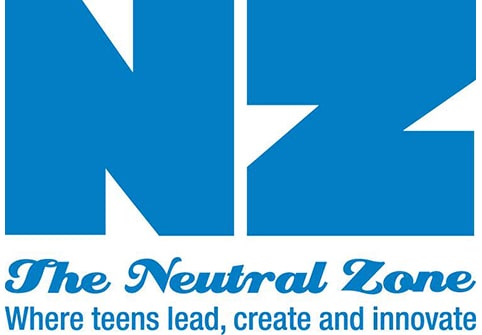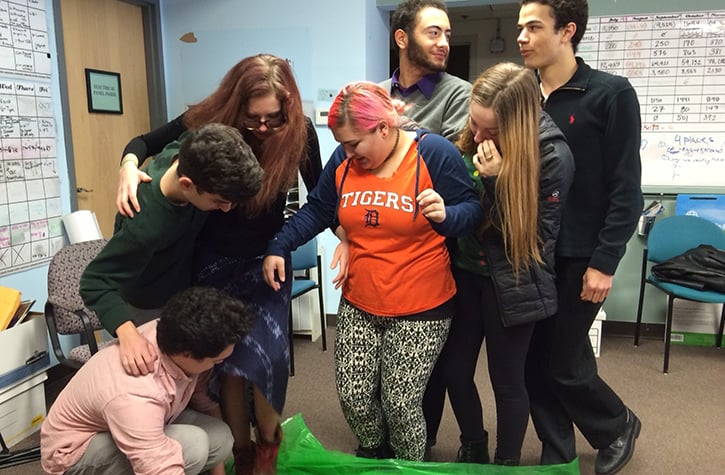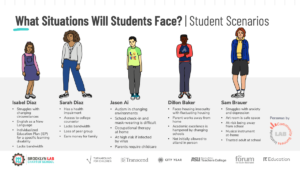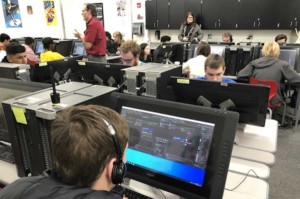Why Letting Youth “Run the Store” is Important for their Development & Life Success

John Weiss
It’s incredible what young people are capable of when adults have the courage to step back and give youth a chance to play authentic roles and make meaningful decisions. At Neutral Zone, a youth-driven teen center in Ann Arbor Michigan, our emphasis is on providing youth voice, involvement and ownership at multiple levels of the organization. This “youth-driven” approach helps youth achieve great things; at the same time it helps support healthy development, civic engagement and builds 21st century skills and socio-emotional competencies.

We start by letting youth have an authentic voice in our creative programs in music, visual arts and poetry. They not only create works and products driven by their own interests and ideas, they lead the charge for promoting and managing performances and exhibitions for themselves and others. Teens at Neutral Zone run their own 400-person concert venue, the B-Side, and book concerts of their peers. Teens also curate themed visual arts shows, providing a space for hundreds of teen artists to exhibit their works. They also publish books of their peers and professional authors through our Red Beard Press.
Additionally, Neutral Zone teens drive their own programs. We train them to serve as facilitators in our weekly programs, with adult staff serving as advisors. Teen facilitators develop agendas, run the meetings, ask guiding questions, and use active strategies to keep their peers engaged.
Neutral Zone’s Teen Advisory Council (TAC) decides what programs are offered at the center. TAC runs an annual fundraiser to raise money to grant to other programs. At the end of each year, the TAC teens conduct a program evaluation and present their findings to the Board.
At the highest levels of the organization, half of the members of the Board of Directors are teens. They are full voting members and sit on every Board committee, from human resources to finance. Teens do things that adults might normally be reluctant to let them do. They help cultivate donors, hire the leader of the organization, approve budgets, and discuss sensitive staffing issues.
Through 18 years of developing and practicing our “youth-driven” model, we’ve learned a lot of lessons that we have been sharing to help other programs support youth. We believe many of these lessons can help parents better support their children. Some of the most important ideas include:
- Look for ways to support intrinsic motivation. Intrinsic motivation is a powerful engine of learning and positive development. Youth engagement and perseverance flourishes when they are involved in activities and structures that offer them a sense of control, tap their curiosity and challenge them in positive ways. Parents should seek out programs for their children in school and after-school that tap this important motivator by helping kids pursue their passions. Within the family structure too, parents can look for more ways to give children choice, control and challenge. It might start by letting them design or decorate their own rooms. It can further happen by inviting them to participate in planning or selecting family vacations or events.
- Pay Attention to their Developmental Needs. Adolescents are at a critical time in their development, where their bodies and brains are growing faster than any other time in their lives besides infancy. In their social development, they are developing identities outside of their families and in the larger community. Parents should recognize and accept their children’s special developmental stage – and understand that trying out new identities is their job as adolescents. Furthermore, giving children opportunities to be more autonomous, make choices, and have meaningful involvement are all part of helping them become successful adults.
- Ask Questions. One of the strategies we employ to tap youths’ curiosity, reasoning ability, creativity, and independence is by asking “open ended” questions. Questions help youth consider options, think critically, be reflective, and meaningfully consider options and ideas. Open-ended questions show youth that we trust them to have good ideas, think for themselves, and contribute. It helps them build a sense of autonomy and competence – leading to engagement and a deeper investment in their pursuits, whether it is at home, school or in after-school programs.
- Exposure to Natural mentors. Youth need adults in their lives, outside of their parents, to help support their healthy development. Exposing youth to community leaders, youth workers, and neighbors helps them develop relationships with others that they can learn from while building their own social capital. These relationships are often most meaningful to youth when they can gravitate to the adults who they feel a natural affinity; this is different than traditional mentoring programs, which rely on a fixed pairing.
Giving young people voice, choice and decision-making opportunities is critical to support their healthy development and life success. They need to make decisions, act on their intentions and work collaboratively in school, in after-school programs and in family structures. Providing these opportunities before they become full adults is critical if we want them to have the best chance at success in their personal, educational, civic and work lives.
For more, check out:
This blog is part of our Smart Parents series in partnership with the Nellie Mae Education Foundation. For more information about the project, see Parents, Tell Your Story: How You Empower Student Learning as well as other blogs:
- Learning is Personal for Your Child
- Smart Parents are Involved, Informed, Intentional, and Inspirational
- Drop Everything and Sail the World
 John Weiss served as the Executive Director of the Neutral Zone (NZ), Ann Arbor’s Teen Center for 9 years and has been serving as its Director of Strategic Initiatives since January. Follow him on Twitter, @youthdriven.
John Weiss served as the Executive Director of the Neutral Zone (NZ), Ann Arbor’s Teen Center for 9 years and has been serving as its Director of Strategic Initiatives since January. Follow him on Twitter, @youthdriven.








0 Comments
Leave a Comment
Your email address will not be published. All fields are required.